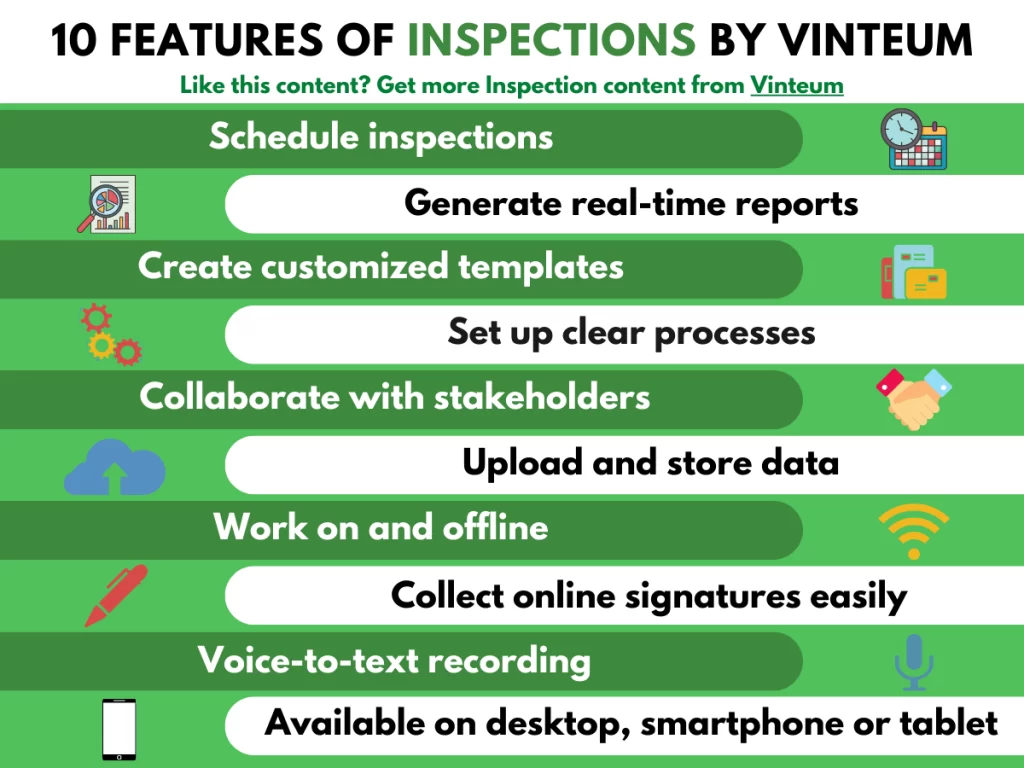Are you considering starting a home inspection business? To succeed in the industry, you’ll need a comprehensive home inspection business plan. It will help you set goals, identify your target market, and create a roadmap for success. In this article, we’ll share five essential tips for creating a winning home inspection business plan that sets you apart. We’re also offering a free customizable template to help you with the process.
Whether you’re starting from scratch or looking to take your existing business to the next level, these tips will provide you with the guidance you need to thrive in the home inspection industry.
What is a home inspection business plan?
A home inspection business plan is a written document that outlines your company’s mission, goals, and strategies. It’s like a roadmap for your business, helping you to focus and make informed decisions. The plan should include key elements such as your target market, financial projections, marketing strategies, and operations plan. It provides structure, clarity, and direction for your business. By creating a well-crafted home inspection business plan, you’ll be better equipped to navigate the challenges of starting and growing a successful business.
Tip 1: Define your business goals
Before you start drafting your home inspection business plan, you need to define your business goals. Think about what you want to achieve and how you plan to get there. Your goals should be specific, measurable, achievable, relevant, and time-bound (also known as SMART goals).
For example, one of your business goals might be to perform 300 home inspections in your first year of operation. Another goal might be to expand your services to include commercial inspections within the first three years of operation.
Here are other examples of SMART goals home inspection business:
- Establish partnerships with at least 3 local real estate agencies within the first 6 months of operation to increase referrals and establish a consistent stream of business.
- Perform 250 home inspections in the first year of operation, with an average customer satisfaction rating of at least 4 out of 5.
- Increase the number of inspections conducted per day by 25% by implementing efficient and time-saving home inspection software.
- Hire and train 2 additional inspectors within the first year of operation to expand service offerings and improve turnaround time.
- Train all home inspectors on the use of the home inspection app within the first month of operation to ensure that all inspections are conducted consistently and accurately.
These goals are SMART because they are specific, measurable, achievable, relevant, and time-bound. Each goal has a clear target, deadline, and a way to measure progress, making them more likely to be achieved.
Defining your goals will help you to stay focused and make strategic decisions for your business. It will also help you to measure your progress and identify areas for improvement. As you develop your business plan, refer back to your goals to ensure that your strategies align with them.
Here are a few questions to help you define your business goals:
- What is your vision for your home inspection business?
- What are your short-term goals (1 year or less)?
- What are your long-term goals (3-5 years)?
- How many home inspections do you want to perform in your first year of operation?
- What other services (if any) do you plan to offer?
- What is your target market, and how will you reach them?
- What is your expected revenue and profit margin?
- What sets your business apart from the competition?
By answering these questions, you’ll be well on your way to defining your business goals and creating a plan that sets you up for success in the home inspection industry.
Tip 2: Conduct Market Research
To create a winning home inspection business plan, you must conduct market research. This involves gathering and analyzing information about the market, including customers, competitors, and industry trends. By doing so, you can gain insights, identify gaps, and develop strategies to differentiate your business.
There are several methods you can use to conduct market research, including:
- Online Research: You can gather information about the market by conducting online research. This involves using search engines (such as Google, Bing, or Yahoo), social media platforms, and industry websites to gather information about potential customers, competitors, and industry trends. Compiling the information you find during your online research into a spreadsheet can help you organize and visualize it for easier analysis and understanding.
- Surveys: You can also conduct surveys to gather information about the market. This involves creating a questionnaire and distributing it to potential customers, industry experts, and other stakeholders. You can create surveys easily using online platforms such as SurveyMonkey, Google Forms, or Typeform. You can share the survey through email, social media, or your website. Other great places to share it are forums or groups discussing home inspections. You can easily find these forums on platforms such as Reddit, Quora, or even Linkedin.
- Focus Groups: Another method of gathering market research is through focus groups. This involves gathering a small group of potential customers or industry experts to discuss their thoughts and opinions about your business and the industry. Participants are encouraged to share their experiences, preferences, and feedback. This information can help you gain insights into your target audience and identify areas where you can improve your services. To do a focus group, you will need to recruit participants, select a location, and create a structured agenda or discussion guide. Focus groups can be conducted in person or online, depending on your preference and the availability of your participants.
Tip: 3: Develop a marketing strategy
Once you have identified your target market, you need to develop a marketing strategy. This strategy should include tactics that will help you reach your target audience effectively.
One important element of your marketing strategy is branding. Your brand should be consistent across all marketing materials, including your website, social media accounts, and printed materials. You need to establish a business name, logo, and overall visual identity.
Another essential element is to figure out what sets your business apart from competitors and make it a focal point of your marketing efforts. For example, your business may have a unique pricing structure or specializes in a specific type of property inspection. Or, perhaps, it uses the latest home inspection software to provide more accurate and detailed reports.
Once you’ve done that, it’s time to identify the best channels to reach your target market. This may include online advertising, social media marketing, email marketing, or other tactics. You don’t have to promote everywhere. Especially in the beginning, as it would take you a lot of time. A website is an important channel. Having one is essential in today’s market, as it boosts credibility and ensures that clients can find you easily. So it might be wiser to start by creating a website.
To kickstart your business, it’s beneficial to form partnerships with real estate agents and property managers to gain more referrals. Word of mouth is a powerful marketing tool.
Don’t forget about printed materials, such as business cards, brochures, and flyers. These should also be consistent with your brand and include essential information about your services and how to contact you. You can give them to clients after an inspection so they can refer you.
When conducting market research, it’s essential to analyze your competitors’ marketing strategies to help you define your own.
Tip: 4 Plan your finances
Creating a home inspection business plan involves careful consideration of your finances. You will need to develop a detailed financial plan that covers your startup costs, operating expenses, and projected revenue. Here are some steps you can take to plan your finances:
- Determine your startup costs: Make a list of all the expenses associated with starting your home inspection business, including equipment, software, insurance, licensing fees, and marketing materials. Use this list to calculate your total startup costs.
- Create a budget: Once you have identified your startup costs, create a monthly budget that outlines your operating expenses, such as rent, utilities, supplies, and advertising. Be sure to include a contingency fund in case unexpected expenses arise.
- Estimate your revenue: Research the market and competition to estimate your potential revenue. Consider the pricing strategy that you will use and your target customer base. Use this information to create a sales forecast that outlines your projected revenue. For instance, if you’re planning to launch a home inspection business in Florida, research the average fees charged by inspectors in various counties.
- Seek financing: Depending on the size and scope of your business, you may need to seek financing to cover your startup costs and operating expenses. Consider all your financing options, such as loans, grants, and crowdfunding. A well-crafted business plan is a powerful tool to showcase your business to potential investors and persuade them to invest in it.
- Review and adjust your financial plan: Regularly review and revise it as necessary. Keep track of your actual revenue and expenses and adjust your budget and sales forecast accordingly. Regularly updating your financial plan will help you stay on track and achieve your business goals. Quickbooks is an excellent financial software solution for small and mid-sized businesses, providing a user-friendly way to manage and track finances.
Tip 5: Establish your business operations
Once you have your marketing strategy in place, it’s time to focus on the practical aspects of running a home inspection business. You need to establish clear procedures and processes for all aspects of your operations. This includes everything from scheduling appointments to conducting inspections, delivering reports, and collecting payments.
One way to streamline your operations is by using software specifically designed for home inspectors. For example, some software can help you manage your schedule, automate report writing, and even create processes.

When it comes to scheduling, you’ll need to decide what times of day and days of the week you’ll be available for inspections. Consider the availability of your target market, such as working professionals who may need weekend appointments.
During inspections, it’s important to follow a consistent process to ensure accuracy and completeness. Some home inspection apps allow you to create templates that you can use on your phone during inspections.
Additionally, you’ll need to establish processes for handling client communications and follow-up. This may include setting expectations for response times and developing templates for common inquiries or follow-up messages.
Last but not least, it’s important to decide on a payment collection method that works for your business, whether that’s collecting payment on-site after the inspection or sending an invoice and collecting payment online.
Having clear and consistent processes in place will help you provide a professional and reliable service to your clients.
Final points: Home inspection business plan
In conclusion, starting a home inspection business requires careful planning and execution. By following the tips outlined in this article, you can set yourself up for success. Using home inspection software can make your life easier by streamlining your operations and improving the accuracy of your reports.
Starting or growing a business is a journey, so be patient and persistent, and don’t be afraid to seek help and advice from professionals and peers. With the right mindset and tools, you can build a successful and profitable home inspection business. Good luck!

FAQs (Frequently Asked Questions)
What is a home inspection business plan?
A home inspection business plan is a written document that outlines the goals, strategies, and operations of a home inspection business. It serves as a roadmap for the business owner to follow in order to achieve success in the competitive field of home inspection.
Why do I need a home inspection business plan?
A business plan is essential for several reasons. It helps you clarify your business goals and objectives, identifies your target market and competition, outlines your marketing and sales strategies, establishes your financial projections and budget, and serves as a reference point for making business decisions.
What should be included in a home inspection business plan?
A comprehensive home inspection business plan should include an executive summary, business description, market analysis, marketing and sales strategies, operational plan, financial projections, and appendix with supporting documents such as resumes, licenses, permits, and insurance.
Can I use a home inspection business plan to secure funding or loans?
Yes, a well-prepared home inspection business plan can be used as a tool to secure funding or loans from investors, banks, or other financial institutions. It provides a comprehensive overview of your business, its potential for success, and your strategies for growth, which can help lenders or investors assess the viability of your business and make informed decisions.
Is it necessary to update my home inspection business plan over time?
Yes, it’s important to regularly review and update your home inspection business plan as your business evolves and market conditions change. It allows you to reassess your goals, strategies, and financial projections, and make adjustments to stay competitive and achieve success in the dynamic home inspection industry.



